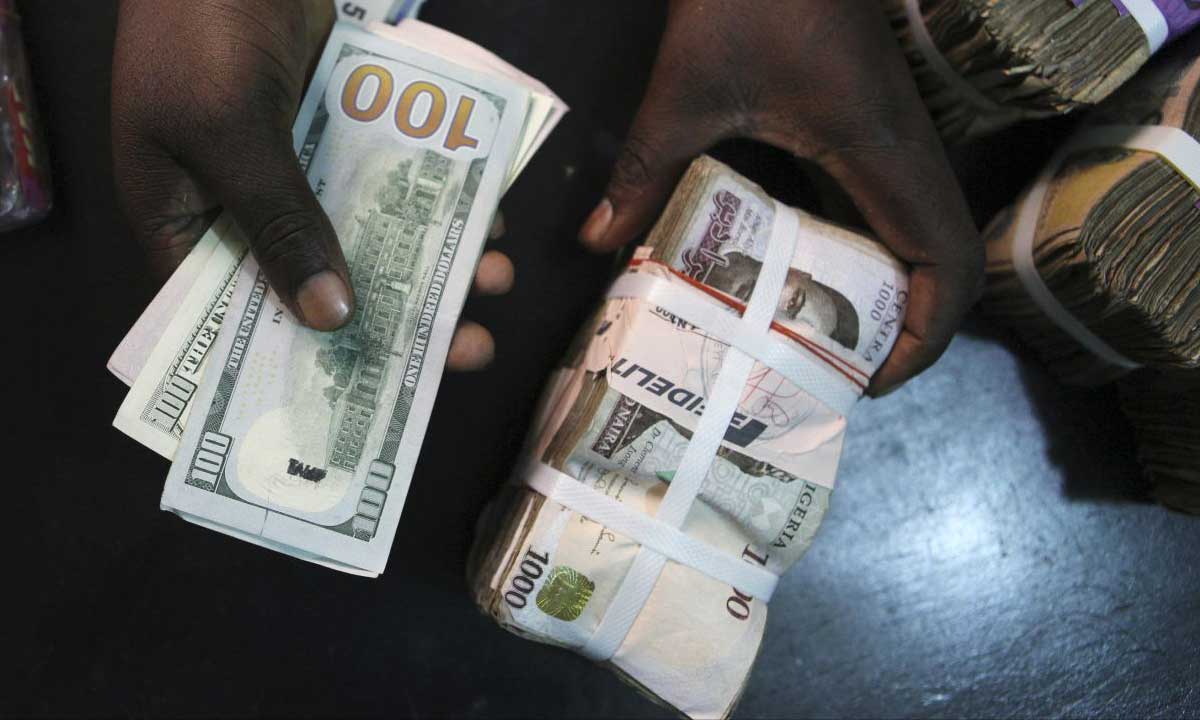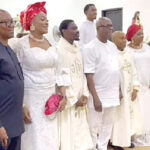
The current administration has taken two key decisions on the economy. The first was the removal of subsidy on petrol, and the second was the merging of official and parallel market exchange rates. The parallel market is usually referred to as the black market. These two decisions have adversely affected the economy of this country.
What one needs to emphasise is that subsidy is not a bad thing, but it is economically reasonable to subsidise production instead of consumption. In developed economies, subsidies have continued in certain sectors, such as transport and energy. As one author argues, subsidy is not a strange bird in market economies and should not be served cold to less developed countries.
In Nigeria, subsidy on petrol has been bastardised. It became the haven for corruption. We were not only subsidising our domestic consumption, we were also subsidising some West African countries.
In the 2010 federal budget, N240bn was to be spent on subsidy, but by October of the same year, over N1tn had been spent on subsidy and by the end of the year, the Federal Government would have spent about N1.3tn. With this, the economy was heading for the worse. The N1.3tn could have been used to improve the debilitating infrastructure in the country.
The corruption was too much; it was alleged that when an entrepreneur imports 60 metric tonnes, he would rush to Abuja to claim subsidy on 100 metric tonnes.
The activities of the Price Equalisation Fund worsened the situation. It does not follow any economic principle that petroleum products should be sold at the same price throughout the country.
Right from the time of former President Obasanjo, our leaders realised that subsidy on petrol was a waste of our hard-earned money. In one of his speeches President Obasanjo said, “Subsidising fuel to the tube of N12 per litre is a wasteful way of spending our money. The N250bn subsidy per annum could be saved and used in providing education, health, water supply, roads, security and food.”
His successors also knew that subsidy was a waste but none of them had the political will to remove it. This explains why we should praise the current administration for showing the political will to remove the subsidy. However, the pain on the people is too much; therefore the government should embark on providing palliatives that would cushion the negative effect of the removal.
Unfortunately, right from the time of Obasanjo, no one has been successful in repairing our dilapidated refineries or building new ones. Nigeria, being the sixth largest producer of crude oil in the world, cannot refine enough petroleum products for domestic consumption. This is a collective failure of leadership by our previous leaders.
Unification of our foreign exchange rates is the second important decision made by this administration. Before the merger, the official rate was about N400, while it was about N800/900 naira to the British Pounds. In order to achieve the merger, the government has embarked on floating the naira.
It is worthwhile to expatiate briefly on the floating exchange rate, the basis of which is that the exchange rate between two currencies is determined by market forces of supply and demand. In this way, the available currency goes to those who are prepared to pay the prevailing price for it and those who cannot afford it may not be able to import goods from abroad. The main question is, how beneficial is this system to our economy?
Freely floating exchange rates are not desirable in our economy which depends heavily on the importation of all sorts of materials. Floating or fluctuating exchange rates are so unpredictable and are subject to wide and uncontrollable fluctuations, and susceptible to foreign and domestic currency speculations.
One can argue that floating the naira will subject Nigeria to greater instability and vulnerability because our development plans and other economic activities will depend on the free market forces of supply and demand for both local and foreign currencies.
With the present situation, the naira has been greatly devalued. Initially, the official rate of exchange was around N400 per dollar, but within a few months, under the floating exchange rate system, the exchange rate jumped to between N700/N800 to the dollar. This has created inflation, with a resultant increase in the prices of most goods, both imported and locally produced.
With the system of allowing the naira to find its realistic value, the prices of everything, particularly petroleum products, have gone beyond the reach of almost every Nigerian except the special class. We are witnessing what is referred to as galloping inflation, defined as the persistent rapid rise in prices of goods and services. One can identify a number of reasons for this.
The first is that there is a high demand for both imported consumer goods and raw materials. High prices of imported goods arising from the implementation of a floating exchange rate will not debar Nigeria from importing foreign goods including petroleum products which we do not produce domestically.
At the present rate of our technology, whether we like it or not, we have to import capital goods and some raw materials produced abroad. Our factories are equipped with foreign machinery and equipment. Besides importing the main machinery, we have to import spare parts as well. Higher prices as a result of the depreciation of the naira will increase the cost of production. There is hardly anything we use in our homes that does not contain foreign components. Attempts to float the naira to achieve its realistic value will continue to create economic hardship for the people.
As the value of the naira continues to fall, there is the likelihood that the price of petrol will increase because we do not refine at home. Importers are forced to import foreign goods with devalued naira. An importer needs more naira to buy the same quantity of foreign goods purchased two or three months ago.
The situation described above suggests that we should have rethink of floating the naira. It is economically unreasonable to revert to where both the official and parallel market rates operated.
When the official rate was about N400 to the dollar, the black market was around N750, this gives room for arbitrage which adversely affects the economy.
The question is, how does the country get out of this problem? One is forced to suggest a managed currency if we want to generate growth and development. We cannot allow our currency to continuously depreciate; we have to manage our currency, no country leaves its currency totally to the whims of market forces.
Under a managed currency or fixed exchange rate system, a country fixes the rate of exchange of its currency within two narrow limits against foreign major currencies, such as the dollar or pound sterling, which are universally accepted as a medium of exchange. The rate of exchange is not fixed per se, it is allowed to fluctuate within lower and upper limits. For example, the lower limit may be N600 while the upper limit is N650. The currency is allowed to fluctuate between these two limits. If the exchange rate reaches N650 the Central Bank comes in to intervene so that it does not go beyond the upper limit. We cannot continue to bastardise our currency and expect economic development.
In addition to having a managed or fixed currency, it is important for the government to adopt some, if not all, of these policies.
First, concerted efforts should be made to change our consumption pattern; we need to consume home-made goods instead of imported ones. Any amount spent on imported goods does not create employment in Nigeria.
Also, there is an urgent need for export drive. We should not only try to increase exportation of mineral and agricultural resources, but manufactured goods as well. If we really want to develop and solve our economic problems, we should strive hard to revive most of our moribund industries, such as textile industries, iron and steel etc. Efforts should be made to increase the range of our exports, agricultural and manufactured goods.
Similarly, it is an irony that Nigeria, with favourable climatic conditions for agriculture, still imports a large proportion of food items from abroad. The famous groundnut pyramids have vanished, and palm oil and groundnut oil are being substituted with foreign vegetable or maize oil.
Agriculture is one of the sectors that can create employment for the teeming youth and greatly contribute to the country’s GDP.
We need an agricultural revolution, and one is happy that the present administration has declared a state of emergency in agriculture. In addition, we also need to declare a state of emergency for security. Many farmers had been sent out of their farms by bandits.
There is also the need to reduce the cost of governance.
Since the beginning of civilian administration in 1993, we introduced the presidential system of government, instead of the cabinet system of government. It has been argued by many patriotic Nigerians that this system of government is very expensive, because it does not only duplicate offices but also encourages the creation of unnecessary offices to serve political interests.
At the federal level, during the last administration, we had 43 ministers even though the constitution requires one minister per state. We have a bicameral legislature; the Senate and the House of Representatives. It was alleged that in 2010, a senator earned about N240m as salary and allowances, and ministers may earn more. The members of the House of Representatives were alleged to earn about N180m annually. Our legislators are arguably the highest-paid politicians in the world. Each state has both executive and legislative arms, which cost billions of naira to maintain.
Under the current economic hardship, it is necessary to reduce the cost of governance, both at the federal and state levels.
Also, the rehabilitation of our oil refineries is crucial, and if they cannot be repaired, please privatise them. It is unfortunate that a lot has been spent on these refineries without results. The problem of petroleum products will continue to be with us if necessary actions are not taken on our refineries.
Furthermore, fiscal policy should have a human face. Instead of increasing taxes, we should increase the tax net so that more people who have not been paying taxes should be included. The astronomical increase in import duties should be revisited, because it fuels inflation. This is not the right time to hike the prices of electricity and other services consumed by the citizens.
In summary, we need to urgently diversify the economy in order to have sustainable development and improve the welfare of the citizens.




